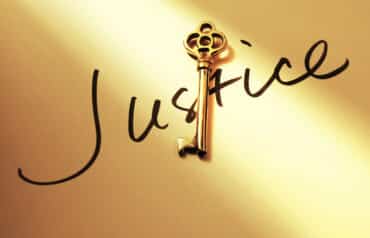Let’s not sugar-coat it. Having to fulfill continuing education requirements is a pain. Lawyers are not the only ones subject to ongoing education obligations. Doctors, teachers, real estate agents, residential builders, engineers, accountants and other professions all have their annual requirements. Of course, this means a whole industry of content providers exists, too, and some of them charge jaw-dropping rates. No wonder many lawyers think CLE is simply a racket and cannot wait to check the “completed” box on their annual registration.
CLE Is a Necessary Evil: Make the Most of It
Checking that box is a critical thing that not everyone takes seriously enough. For some registrations, checking the box is done under penalty of perjury. How that translates: If you are audited for your compliance records and cannot produce them, you can be prosecuted and disciplined for an act of moral turpitude. Lawyers serve disciplinary suspensions for checking that “I completed my CLE” box without being able to prove their compliance.
That said, since we cannot avoid the requirement (unless you practice in Michigan or one of the other states with no CLE requirement), there are ways to make fulfilling it more than just bearable. You can actually get a lot out of meeting CLE requirements. Here are several pointers.
Don’t Leave It Until the Last Minute
First, stay on top of your requirements throughout the year. If you avoid having to do all your hours at the last minute, you up the chances of finding programs of real interest to you. You can seek out attendees you enjoy spending time with and presenters you want to hear speak. Surely this is better than watching endless online courses on irrelevant subjects at 10 p.m. the night before your deadline.
Go Forth and Network
It is easy to get caught up in our day-to-day work life, but now and then it pays to get out and meet people. Find a legal conference offering CLE credit that resonates with you, has other attendees you want to meet, has great speakers and is not too far from home. There are many to choose from. You might check out Clio’s Cloud Conference and ABA TECHSHOW. Your state bar probably has an annual meeting full of programming. The ABA divisions and sections have programs. Practice area trade associations have big conferences. The list goes on.
You will hear presentations on topics of interest and snag some CLE credit too. (Plus, you might actually have fun.)
Find Free and Low-Cost Options
Many lawyers think CLE has to cost a fortune, but this is really not true. If you follow some of the big content providers throughout the year, you can find lots of free and low-cost options available. They just might not be available on demand at any hour of the day in high volume.
For example, Practicing Law Institute has free one-hour webinars on demand, and they come out monthly. But only three are available at a given time. Watching one a month will help you meet your requirements by year-end.
Malpractice insurers like Attorney Protective offer free webinars for clients, but they are not recorded. So you need to pay attention to when they send around invitations to come listen live. Also, Avvo and other vendors have relatively frequent free webinars for CLE credit. Again, pay attention to your inbox.
There are also some great low-cost alternatives, especially if you only need a few credits. Self-study articles in bar publications and bar-provided short webinars are good options.
Speak or Write for Your Credits
Look into your state rules for being a content provider for CLE. This doesn’t mean you need to host or sell webinars. It simply means that if you are the speaker at a session approved for CLE credit, or you write an article that allows readers to get CLE credit through self-study, you may be able to earn CLE credit yourself. Plus, you typically get at least twice the hours (sometimes more) for being the presenter.
Speaking and writing have their own benefits that have nothing to do with CLE, such as honing your practice knowledge and becoming recognized as an expert in your field. Meaning these are great options for getting your credits.
When You Do It, Maintain Your Proof
Once you have obtained your CLE credit, make sure you keep proof of it. The easiest thing to do is put a folder on your cloud drive called CLE 2018 and save copies of all your CLE certificates there. Then, when your deadline is coming up, you can easily confirm that you have met your requirements before certifying this to the state bar.
















